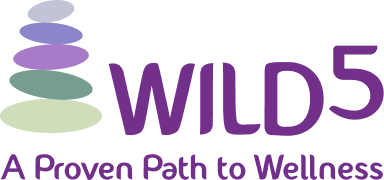WELLNESS IDEAS
Living well doesn’t mean surviving. It means thriving. The journey to thriving can be supported by evidence-based resources on self-care, mindfulness, and healthy relationships.
Health and Self-Care >

Take care of your body. Exercise, eat a balanced diet, and get enough sleep.1
Find a physical outlet for intense emotions of grief, rage, and hurt in the aftermath of trauma. Some ideas include kickboxing, yoga, dance cardio, and running. Use exercise as an act of self-care, not self-destruction.2
We recommend you consult with your healthcare provider prior to starting any exercise program.
Mindfulness >

Engage in positive affirmations every day. Say them aloud, record them on your phone, or write them on sticky notes and hang them around your house. “I am beautiful, inside and out” is just one example of a positive affirmation.2
Try deep-breathing exercises, meditation, tai chi, or yoga to relax.1,2
Creativity >

Make music, write, paint, or draw to channel your pain into something creative.1,2
Connections >

Meet or call at least 2 friends or family members each day for 30 days.3
Grow your social network. Join a club, take a cooking class or dance class, or play sports as a way to engage in more social activities.3

WILD 5 is a proven, 30-day program that combines established wellness practices and positive psychology.
WILD 5 focuses on 5 wellness practices: exercise, mindfulness, sleep, social connectedness, and nutrition.3
-
References:
1.National Council for Mental Wellbeing. How to manage trauma infographic. Accessed October 12, 2023. https://www.thenationalcouncil.org/resources/how-to-manage-trauma/
-
2.
National Domestic Violence Hotline. 5 powerful self-care tips for abuse and trauma survivors. Accessed October 12, 2023. https://www.thehotline.org/resources/5-powerful-self-care-tips-for-abuse-and-trauma-survivors/
-
3.
WILD 5. 2023 Otsuka America Pharmaceutical, Inc. Accessed October 12, 2023. https://wild5wellnessprogram.com/